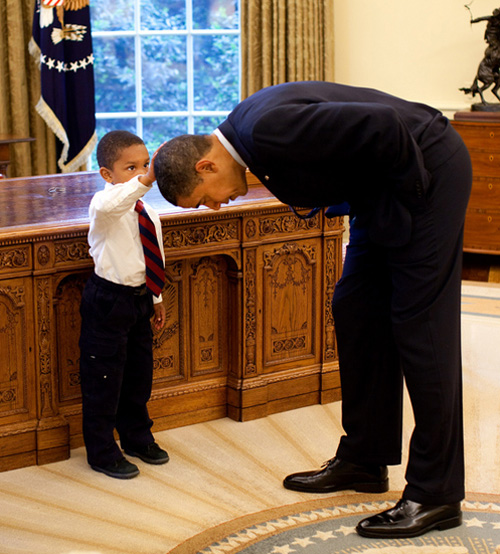A draft to defeat the spirit of procrastination...
"As tyme hem hurt, a tyme doth hem cure" from Troilus and Cresyde, Chaucer
Forgiveness and Time
The fifth, or quintessential element of forgiveness is time. The relationship between forgiveness and time is the most crucial relationship in our efforts to come to terms with the concept of forgiveness. It is time that is often our greatest enemy and time that can be our greatest friend. People believe falsely, and carelessly that “time heals all wounds”...but those of us who have hurt and been hurt know as a matter of fact, a matter of breath, a matter of pain that time heals nothing. Time in a very basic sense is just a measure and one may measure suffering as easily as one may measure pleasure. Time is neutral. Our suffering is not.
The philosopher Heidegger imagined that our conception of time was misshaped by our assumptions about its relationship to eternity. He argued that many of our misconceptions about time were rooted in our attempts to related our experience of it to the infinite expanse of eternity which we could never experience. He reckoned that we would benefit by more honestly having our thinking about time shaped by an honest encounter with the impress of death, of our finitude. As others have rightly noted, we are also limited on this valence. We know no more of death than we do of eternity.
I am a thoroughgoing ironist. I think we err when we make death and eternity opposites. There are related in a way that is at once mystery and certainty to us. If life has any meaning at all death and eternity work together are intertwined, dance, even make love: make each other possible.
We measure our life in hurts and strivings. We all are hurt by and hurt others, often deeply. It seems the very processes of life: birth, growth, flourishing, and death involve forms of pain, blood, anguish and injury. How we come to be who we are is a blood-stained and tear-soaked and grief-formed reality. Without forgiveness and other forms or resilience and reconciliation there would be only death and pain, with pleasure as simply a narcotic, an addiction to get us through to the next assault.
Forgiveness is fundamental to life as juxtapose to mere existence. Here is something of the central import of forgiveness.
Here is something I have come to understand beneath an almost unbearable grief-like weight: forgiveness and time are bound together inextricably. All who suffer know this, like we know we need air to breath. But I do believe it might help some to know that forgiveness involves encountering time on your own terms and in a way that will allow you to direct the healing power of grace, to us this gift, to thrive even in the most difficult hours, to experience joy, real joy in your lowest moments...
Forgiveness is a way of navigating time...
We understand time as split in three parts: past, present and future. Deep forgiveness maps this structure as well. A part of the real prolegomena of forgiveness is the way we most often trenchantly misunderstand the things that hurt us. There is a mechanism within us whenever we are hurt that seeks to protect us from the assault that is severe injury. This assault causes us to lose time, to not feel, what we feel as painfully as we might. We are drugged by our body and our psyche at "the moment of impact, crisis or injury." The things that hurt us MOST (let's say disrespect and betrayal) are always tethered to a past experience. The present hurt, whatever it is is NEVER the total source of our anguish. The crisis it creates fractures our sense of self and makes the future unbearable in a way impossible. This is the very architecture of the "unforgivable." Time already is inherently, every moment of it, anxiety ridden by definition. We are imprisoned in a series of presenceS" and the past is only as good as our imperfect memories and the future is inherently uncertain. The struggle to be human is to integrate this broken experience of time into a whole personality.
The work of being human, the art of living and loving is our response to this crisis of temporality. Forgiveness, after love, is the most important spiritual virtue in this battle to be whole. I have been thinking through and struggling for years, months, days, hours, interminable seconds to deal with my own brokenness and broken heartedness (or not deal with it--this is what makes this piece, this draft so hard to write. It is the heart of the matter.) Here is what I think I have found.
When we find it difficult or almost impossible to forgive and when we are ready to seek to forgive we cannot begin with what we think is the most acute and searing center of our pain. This is almost always an illusion, a partial truth, an obscurant. The very thing that is hurting us most is simply the present iteration of a past hurt that we evaded, buried, found unbearable to express or sublimated. As painful as it is, and it may be horrific, as adults it is not the source of our difficulty in forgiving. This anguish has simply reminded us of a deeper unbearable anguish.
The process of burying that hurt has created in us a tendency and proclivity to blame ourselves for being vulnerable in the "second" place and often makes us blame ourselves for things that are not at all wholly our fault, which ironically undermines our capacity to forgive at all. We cannot forgive ourselves and this freezes us in time. It actually destroys hope and traps us in a funky house of mirrors without clocks. Our only relational currency becomes resentments which we build up and exchange with the people we are trying to love most or work with most. And we collude with them to exchange these resentments as a form of narcotic that only partially releases some of the tension built up in our deep anguish and grief, at the same time as it builds up the pain it needs to survive, not us--but our hurt feeds on us.
Ultimately, the hurt of the past, which might have been a smaller or more manageable injury becomes a complex or series of complexes, one built on top of the other. And forgiveness in the present is impossible because the source of our pain is so deeply buried in the past--usually under someone who we loved so much we couldn't bear to be angry and honest with them and now our life is either a masquerade, or sham, or flat out lie because we turn every close loving relationship into the same type of inside out love-hate codependency we never dealt with before.
In order to deeply forgive we must 1. Forgive ourselves 2. Forgive the person (or group of people) who originally hurt us; 3. Forgive the person who re-injured, reawakened the old pain in us.
This involves dealing with time in a way we are usually unwilling or unable to do. It involves too much honesty. Often, important people are either dead or have buried their transgressions in the sea of "You should be over that!" Still deep forgiveness involves this kind of work.
How do we forgive when most often are cut off from any kind of apology or conversation even, most of the people who hurt us originally and the most are related to us and have a heavy investment in denial or the cheap grace of water under the bridge?
I will not pretend to know the answers to this for everyone or even wholly myself or the people I love most. But i do know that some things will help.
1. We must work to forgive ourselves. Which we can do by accepting the forgiveness of God as a given. In my tradition of Love, we have a prayer that asks of God, "Forgive us as we forgive." I think we often hear this wrong. It is NOT forgive ME as "I" forgive. it is a request for help from God to help "US" forgive. We pray for those we have hurt and for those who have hurt us:forgiveness. When we pray I know we realize that we are not reminding God of anything and often God has already acted on our behalf most times, we are asking God to allow us to see the provision.
2. The hardest work of forgiveness is dealing with the past hurt that often we dont recognize as the hurt. Often we need help and always courage to see the ways that malformed or malpracticed love hurts us in ways so deep it misshapes our capacity to love rightly even ourselves.
3. Forgiving the person we are closest to today whi has betrayed us or disrespected us becomes infinitely easier when we have learned to deal with the past and our own loss of hope and we can center on the truth of the presence offense in its proper context. We can recognize what is our crap and what may be their crap in the hurt we have infected with resentments and has exploded in anguish and resignation.
Forgiveness is a gift but it requires following the instructions to get the full utilization out of it. At its core forgiveness is the real gift of time. Time restored, time enhanced, time saved, time preserved, time filled with promise or hope.
Toby Sanders December 1, 2012 - Facebook page





















